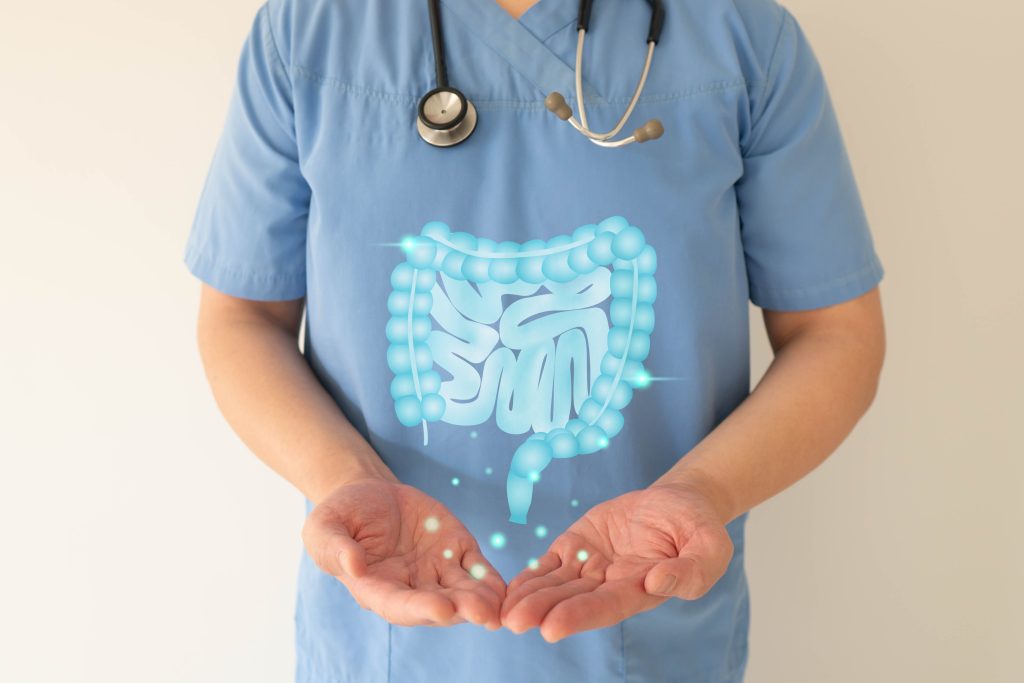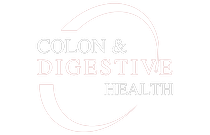Can a Colonoscopy Detect Conditions That Cause Abdominal and Rectal Pain in Conyers?

- colondigestive
- August 21, 2024
- 3:47 pm
- No Comments
You may wonder if a colonoscopy can reveal the underlying causes of your abdominal and rectal pain. This diagnostic procedure is designed to examine the inner lining of your colon and rectum closely, helping to identify various conditions, including inflammation, polyps, and other abnormalities. If you’re experiencing discomfort, understanding the role of a colonoscopy in diagnosing these issues can be crucial for your digestive health. In this blog post, Dr. Karim Shakoor will explore how this procedure can be pivotal in managing your symptoms effectively.
Key Takeaways:
- Colonoscopy as a Diagnostic Tool: A colonoscopy is a crucial procedure that can help identify gastrointestinal conditions responsible for abdominal and rectal pain.
- Conditions Detected: This procedure can reveal issues such as polyps, inflammatory bowel disease, diverticulosis, and colorectal cancer, all of which could explain persistent discomfort.
- Importance of Early Detection: Early diagnosis through colonoscopy can significantly enhance treatment outcomes and may prevent the progression of serious conditions.
- Consultation with a Gastroenterologist: Engaging with a specialized gastrointestinal doctor in Conyers can provide tailored insights and recommendations for when to consider a colonoscopy based on individual symptoms.
- Comprehensive Screening Options: In addition to a standard colonoscopy, additional procedures may be available that can address specific concerns related to abdominal and rectal pain, ensuring holistic digestive health care.
Understanding Colonoscopy
While many people may feel anxious about getting a colonoscopy, understanding the procedure can help alleviate those fears and clarify its importance for your health. In Conyers, GA, the expertise of a gastroenterologist can guide you through this necessary screening process that addresses abdominal and rectal pain.
What is a Colonoscopy?
On its most basic level, a colonoscopy is a medical procedure used to examine the health of your colon and rectum. During this procedure, a gastroenterologist uses a flexible tube with a camera to inspect the inner lining of the gastrointestinal tract, allowing for the early detection of abnormal growths or other issues.
Purpose of a Colonoscopy
Colonoscopy serves several vital purposes, especially for those experiencing abdominal and rectal pain. Primarily, it acts as a diagnostic tool to identify potential issues like polyps, inflammation, or tumors in the colon, which can lead to severe health complications if left untreated.
The purpose of this procedure extends beyond diagnosis; it also plays a crucial role in preventative healthcare. By detecting abnormalities early, you can take action to manage or treat conditions that could develop into more serious problems. Overall, this procedure is a key element of digestive health that can provide peace of mind and safety.
The Procedure: Step-by-Step Guide
One common concern is what to expect during a colonoscopy. Here’s a brief step-by-step overview of the procedure:
Colonoscopy Procedure Steps
Preparation: Follow a special diet and take a laxative the day before the procedure to clear your intestines.
Arrival Check in at the endoscopy center and discuss any last-minute questions with your healthcare team.
Anesthesia: Receive sedatives for comfort and relaxation during the procedure.
Insertion: The gastroenterologist gently inserts the colonoscope into your rectum and guides it through the colon.
Examination: Your doctor examines your colon and can take biopsies or remove polyps if necessary.
Recovery: Post-procedure, you will be monitored until the sedation wears off before going home.
With a clear understanding of the colonoscopy process, you can confidently approach this procedure. Most patients report only minor discomfort, and the benefits—such as early detection of digestive health issues—far outweigh any temporary unease you may feel. Consult with experts like Dr. Karim Shakoor, M.D., for personalized care and guidance throughout your colonoscopy.
Conditions Detected by Colonoscopy
Some key conditions a colonoscopy can detect include polyps, inflammatory bowel disease (IBD), colorectal cancer, and diverticulitis. These conditions can significantly affect your health, especially if you’re experiencing abdominal or rectal pain. Early detection through a colonoscopy procedure is crucial for effective management and treatment.
Polyps and their Significance
Polyps are abnormal growths on the intestinal lining that can vary in size and shape. While many polyps are benign, some can develop into colorectal cancer over time. Detecting and removing polyps during a colonoscopy can help prevent cancer and address potential sources of your abdominal pain.
Inflammatory Bowel Disease (IBD)
With inflammatory bowel disease, you may experience chronic inflammation that leads to symptoms such as abdominal pain, diarrhea, and weight loss. A colonoscopy allows your doctor to visualize the intestines, check for inflammation, and obtain tissue samples for diagnosis.
A definitive diagnosis of IBD often involves assessing the severity and location of inflammation, which your doctor can observe during a colonoscopy. Conditions like Crohn’s disease and ulcerative colitis can be identified, allowing for tailored treatment options that address your specific symptoms and improve your quality of life.
Colorectal Cancer
Colitis is a condition that can lead to changes in the colon, including inflammation and the development of colorectal cancer. A colonoscopy can play a crucial role in early detection, allowing for the identification of potentially malignant lesions before they become serious.
The risk of colorectal cancer increases with age, and early detection is key to the successful treatment of this disease. Regular screenings through procedures like colonoscopy can significantly reduce mortality by identifying cancer in its early stages when it is most treatable. Discussing your symptoms and family history with your gastroenterologist can create a personalized screening plan to safeguard your health.
Diverticulitis
For those who experience abdominal pain, diverticulitis is characterized by inflammation or infection of the diverticula. These small pouches can form in the colon wall. A colonoscopy can help diagnose diverticulitis by allowing your doctor to see inflammation and assess your overall intestinal health.
Colorectal issues such as diverticulitis can lead to serious complications if not properly managed. Symptoms can include severe abdominal pain, fever, and changes in bowel habits. Regular colonoscopies at Colon and Digestive Health can help you monitor your digestive health and prevent flare-ups. You’re taking important steps toward your overall well-being by staying proactive about gastrointestinal health.
Symptoms Indicating the Need for a Colonoscopy
To determine if a colonoscopy is necessary, it’s vital to recognize the symptoms associated with abdominal and rectal discomfort. Identifying these signs promptly can lead to more effective management and treatment of underlying conditions.
Abdominal Pain Types
Types of abdominal pain you may experience include:
Location | Description |
The upper Abdomen | This is Often linked to digestive organs like the stomach or liver. |
Lower Abdomen | May indicate issues with the intestines or reproductive organs. |
Localized Pain | Pain concentrated in one area may suggest appendicitis or diverticulitis. |
Dull or Cramping Pain | Can be related to gas, bloating, or gastrointestinal disorders. |
- Acute or severe pain lasting for over a few hours.
- Pain that worsens or changes in character over time.
- Accompanying symptoms like fever or vomiting.
Knowing these symptoms may prompt you to schedule a consultation with a gastroenterologist in Conyers.
Rectal Pain Manifestations
Indicating rectal discomfort can manifest in various ways, often causing significant concern. Symptoms such as sharp pain, pressure, or a feeling of fullness may signify underlying conditions that warrant investigation.
Need to be aware that rectal pain can arise from several factors, including hemorrhoids, anal fissures, or inflammatory bowel disease (IBD). If you experience these symptoms, it is crucial to consult a qualified doctor who specializes in gastrointestinal health in Conyers to rule out serious conditions.
Other Associated Symptoms
Indicating additional symptoms could further highlight the need for a colonoscopy. These may include changes in bowel habits, unexplained weight loss, or persistent fatigue.
Pain during bowel movements or blood in your stool are alarming symptoms that should not be ignored. If you notice these signs in conjunction with abdominal or rectal pain, seeking prompt medical advice is vital for your health and well-being.
The Impact of Abdominal and Rectal Pain on Quality of Life
Not addressing abdominal and rectal pain can significantly affect your overall well-being. Individuals may find discomfort impacts their daily activities, decreasing physical health and mobility. From simple tasks like walking and exercising to more complex duties, persistent pain can hinder your ability to function optimally. Colon and Digestive Health can help you address these issues effectively and improve your quality of life.
Physical Discomfort
Abdominal pain often manifests as cramping, bloating, or sharp sensations, which can become distracting and exhausting. This physical discomfort limits your activity levels and can lead to a range of other health issues. Regular colonoscopy screenings can help identify the underlying causes, ensuring timely and effective treatment.
Psychological Effects
Impact on mental health is a common consequence of chronic pain. Experiencing persistent abdominal and rectal pain can lead to stress, anxiety, and even depression. You may feel overwhelmed as the discomfort interferes with your daily life, leading to a cycle of worry that can exacerbate your symptoms.
It is vital to understand that the relationship between physical pain and psychological well-being is profound. When one is constantly preoccupied with discomfort, it can become challenging to focus, enjoy activities, or maintain relationships. Seeking help from a qualified gastroenterologist can help manage both the physical symptoms and their psychological implications.
Social Implications
To fully engage in social activities, you need to feel your best. Abdominal and rectal pain can lead to social withdrawal, as you may avoid events or gatherings due to fear of sudden discomfort. This behavior not only isolates you but can also strain relationships with friends and family who may not understand your condition.
A strong support system is crucial, yet chronic pain can hinder your willingness to connect with others. Consulting with a gastrointestinal specialist can provide insights into your condition and potentially improve your quality of life, enabling you to rebuild your social connections and participate more fully in your community.
Preparing for a Colonoscopy
Now that you’ve scheduled your colonoscopy, preparing adequately for the procedure is imperative to ensure the most accurate results. This preparation process includes dietary restrictions, medication adjustments, and understanding what to expect before the procedure. Dr. Karim Shakoor will guide you through these steps to help you achieve the best possible outcome.
Dietary Restrictions
On the days before your colonoscopy, you’ll need to follow specific dietary restrictions. Typically, this involves transitioning to a low-fiber diet a few days before your procedure, followed by clear liquids the day before your procedure to ensure your colon is clean and ready for examination.
Medication Adjustments
Adjustments to your regular medications may be necessary in preparation for your colonoscopy. It’s crucial to consult with your gastroenterologist regarding any medications you are currently taking, especially anticoagulants, as they may need to be paused or modified leading up to the procedure.
Another important aspect of medication adjustments involves over-the-counter drugs and supplements. Some medications, particularly anti-inflammatory and iron supplements, may impact the procedure’s effectiveness and should be avoided. Discuss your complete list of medications with your healthcare provider during your pre-colonoscopy consultation.
What to Expect Pre-Procedure
What you can expect in the days leading up to your colonoscopy is a crucial part of the preparation process. Your healthcare provider will give you detailed instructions, including when to start fasting and how to take any prescribed laxatives to clear your bowels effectively.
To make the process smoother, you’ll also receive information about your arrival time at the facility, what to bring, and any questions regarding sedation options. Being well-informed will help alleviate any anxiety you might feel and ensure that you are prepared for your colonoscopy, especially if you are experiencing symptoms like abdominal and rectal pain. Contact your GI doctor if you have additional questions about preparing for your colonoscopy in Conyers.
After the Colonoscopy
Despite the anxiety often associated with undergoing a colonoscopy, understanding the post-procedure process is crucial for your recovery and ongoing health management.
Post-Procedure Recovery
Any discomfort you experience after the procedure is typically mild and short-lived. Due to the air introduced during the colonoscopy, it’s common to feel bloated or crampy. These sensations usually resolve within a few hours, but you should avoid strenuous activities for the day.
Understanding Results
With your colonoscopy complete, your doctor will review the findings with you, often in the days following the procedure. Understanding the outcome is vital for managing any underlying issues related to abdominal or rectal pain.
For instance, if polyps or abnormal tissue were found, your gastroenterologist may recommend further testing or treatment options. Additionally, if no abnormalities are detected, this can provide reassurance that your symptoms may stem from other causes, such as dietary issues or stress. Having an open conversation with your physician is imperative to comprehend your results and the next steps fully.
Follow-Up Care
To ensure optimal recovery and health, follow-up care is an important aspect of your post-colonoscopy journey. Your doctor may schedule a follow-up appointment to discuss your results in more detail.
Adhere to any follow-up care instructions provided by your gastroenterologist. If additional tests or screenings are recommended, this could be an imperative step in uncovering the root causes of any persistent abdominal or rectal pain you may experience. Regular check-ups and open communication with your GI doctor will enhance your digestive health and ensure that any concerns are monitored effectively.
To wrap up
With this in mind, a colonoscopy is a crucial tool for detecting conditions that may cause abdominal and rectal pain in Conyers. This procedure allows your gastroenterologist to examine the inner lining of your colon, identifying any abnormalities such as polyps, inflammation, or tumors. If you’re experiencing persistent pain, seeking a comprehensive evaluation can lead to timely diagnosis and treatment. Schedule your colonoscopy today to take control of your digestive health and address any concerns effectively.
FAQ
Q: Can a colonoscopy detect the causes of abdominal pain?
A: Yes, a colonoscopy can detect various conditions that cause abdominal pain, including inflammatory bowel disease (IBD), colorectal polyps, and colon cancer. During the procedure, the gastroenterologist can visually examine the lining of the colon and rectum for any abnormalities. If further investigation is required, tissue samples can be taken for biopsy.
Q: What types of conditions can a colonoscopy identify that are related to rectal pain?
A: A colonoscopy can identify conditions that may lead to rectal pain, such as haemorrhoids, fissures, and inflammatory bowel diseases like Crohn’s disease or ulcerative colitis. The procedure allows for direct observation of these areas, helping your doctor determine the best course of action for treatment.
Q: How should I prepare for a colonoscopy if I have abdominal and rectal pain?
A: Preparation for a colonoscopy typically involves dietary restrictions and taking a laxative solution to cleanse the colon. Your gastroenterologist will provide detailed instructions tailored to your situation, especially considering your abdominal and rectal pain. It’s vital to follow these guidelines to ensure optimal results from the procedure.
Q: Are there risks associated with having a colonoscopy?
A: While a colonoscopy is generally safe, it comes with some risks, like bleeding and colon perforation. Discussing your health history and any abdominal or rectal pain symptoms with your gastroenterologist can help mitigate these risks. They can explain how the benefits of detecting potential conditions outweigh these risks.
Q: Where can I find a qualified gastroenterologist for a colonoscopy in Conyers?
A: If you’re looking for a qualified gastroenterologist to perform a colonoscopy in Conyers, GA, consider clinics such as Colon and Digestive Health, which offers specialized services. Look for recommendations, check reviews, or consult your primary care physician to find the best option for diagnosing and treating abdominal and rectal pain.
—————————————————————————————————————-
Karim Shakoor, M.D. is a board-certified gastroenterologist and founder of Colon & Digestive Health Specialists, LLC. He completed his residency and fellowship at Cook County Hospital, which is known for having one of the most extensive programs in the country. Karim Shakoor, M.D. is dedicated to providing his patients with the highest level of care to improve their quality of life. He specializes in the treatment of digestive disorders, including abdominal pain, colon cancer, constipation, diarrhea, diverticulitis, gas, gastrointestinal bleeding, heartburn, irritable bowel syndrome, peptic ulcers, swallowing difficulty, and ulcerative colitis.
Schedule an appointment | Google Maps | Services| About Us
© 2024 All Rights reserved © 2024 by Colon & Digestive Health Specialists

